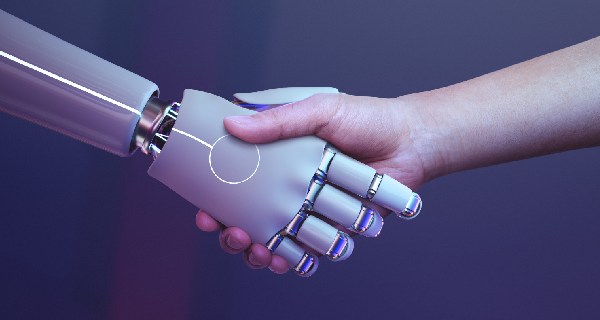Future of AI and Human Intelligence : Artificial intelligence (AI) has transitioned from a concept shrouded in mystery to a readily accessible tool with platforms like ChatGPT, MidJourney, or Whisper AI offering free and user-friendly AI solutions. This marks the beginning of a new era where users can effortlessly generate copy, lengthy content, images, presentations, and entire websites through simple commands and instructions, showcasing the remarkable capabilities of AI.
Despite these advancements, the fundamental question lingers: “Can artificial intelligence replace human intelligence?” In short, the answer is no. While AI excels at certain tasks, surpassing humans in speed and accuracy, it falls short in areas of general intelligence, creativity, and social understanding. This blog aims to explore the essence of AI, its limitations, and its vast possibilities.
Understanding AI
Before delving into the debate of AI replacing human intelligence, it’s crucial to define what AI represents. At its core, AI is a technology empowering machines to execute tasks typically associated with human intelligence, such as pattern recognition, decision-making, and natural language processing. Machine learning algorithms often power AI, allowing systems to learn and enhance their performance over time.
Although AI has existed in various forms for decades, recent advancements in computing power and data analysis have propelled its rapid development. Presently, AI finds applications in diverse fields, ranging from self-driving cars to virtual personal assistants.
The Boundaries of AI
Amidst the optimism surrounding AI, it is vital to acknowledge its limitations. A significant constraint lies in AI’s dependence on the quality of training data. If data is biased or incomplete, the AI system will mirror those biases and limitations. Furthermore, true creativity and innovation elude AI. While it can generate ideas based on existing data, it lacks the ability to think beyond established patterns.
Another crucial aspect is AI’s incapability to grasp empathy or emotional intelligence. Although it can recognize and analyze emotions, it cannot genuinely understand or respond to them in a meaningful way. Consequently, AI falls short in replacing human relationships and social interactions, which demand a profound comprehension of human emotions and behaviors.
The Potential of AI
Despite these constraints, AI holds immense potential to revolutionize industries and address global challenges. According to Andrew Ng, co-founder of Google Brain, AI has the potential to transform every major industry, including healthcare, education, transportation, retail, communications, and agriculture.
AI can enhance decision-making by analyzing vast datasets, identifying patterns and trends imperceptible to humans. This proves especially valuable in sectors like healthcare and finance, where accurate predictions can have life-changing implications.
One of AI’s significant contributions lies in automating repetitive tasks, freeing up time for more creative and meaningful work. This increased efficiency spans various industries, from manufacturing to customer service. Additionally, AI facilitates the creation of innovative products and services by combining data and insights in novel ways, presenting a mere glimpse of its vast potential.
Human Input in the Age of AI
Despite the potential, AI is not a panacea. Human input and oversight remain essential for proper functioning and decision-making in ambiguous situations. Human experiences, creativity, and intuition contribute dimensions that AI cannot replicate.
While AI processes extensive data and identifies patterns, it cannot replace the value of human intuition and creativity in decision-making. It is crucial to recognize that AI is an extension of human intelligence, a tool designed to enhance decision-making and productivity.
Navigating the Future of AI and Human Intelligence
Looking ahead, AI is poised to advance further, undertaking a broader spectrum of tasks with increased sophistication. However, tasks requiring human input, creativity, and problem-solving will persist. Professions involving research, design, strategic planning, and those demanding human relationships, decision-making, intuition, and emotional intelligence, such as physicians, teachers, HR professionals, and business leaders, remain irreplaceable by automation. AI will augment their productivity and effectiveness but not supplant them.
In conclusion, while AI promises transformative impacts on industries and daily lives, it cannot entirely replace human intelligence. Recognizing AI as a tool to augment human capabilities, rather than a substitute, is essential. This approach unlocks the full potential of AI while preserving the irreplaceable value of human input and creativity.
Initiating End-to-End AI Transformation
Embark on your Generative AI journey by leveraging the expertise of Calls9, a leading Generative AI agency. Engage with our AI Fast Lane program, meticulously designed to identify strategic advantages and facilitate the rapid integration of AI solutions within your organization. As AI specialists, we are committed to guiding you through the development of your AI strategy and solutions, ensuring a seamless transformation process at every step.
ALSO READ – US Economy Surges in Fourth Quarter, Defying Recession Predictions
Follow our page on Facebook, Twitter and Instagram for more amazing facts, trending topics and News Articles.












